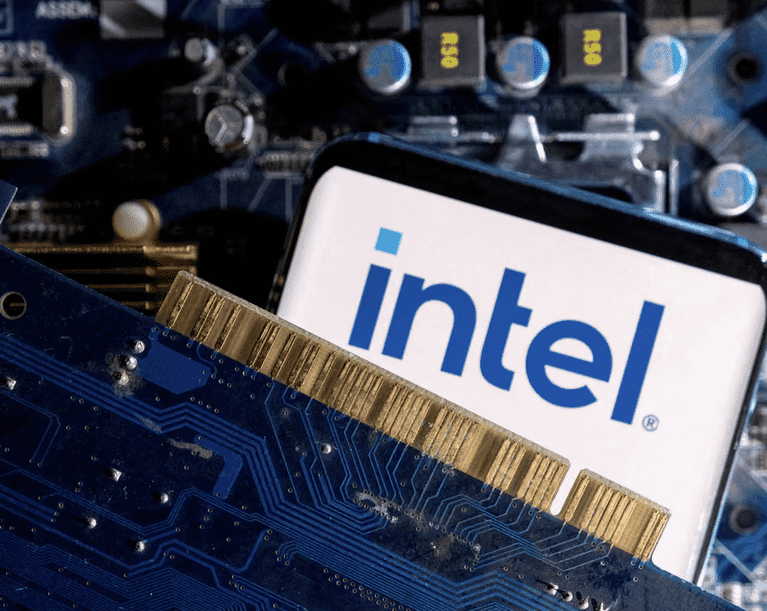Intel is receiving a $2 billion capital injection from SoftBank Group, a significant vote of confidence for the troubled U.S. chipmaker amid its ongoing turnaround efforts. The equity investment, announced on Monday, comes as Intel battles to compete in the fast-growing artificial intelligence chip market after years of management missteps that left it lagging behind global rivals.
The deal will make SoftBank a top-10 shareholder in Intel and complements the Japanese tech investor’s broader AI ambitions, including the $500 billion Stargate U.S. data center project.
“SoftBank’s investment helps, but it is not what is going to move the dial for Intel,” said Amir Anvarzadeh, Japan equity strategist at Asymmetric Advisors. “It’s more to maintain this very good relationship he has with Trump,” he added, referring to SoftBank CEO Masayoshi Son.
The investment follows reports that the U.S. government may consider acquiring a stake in Intel after a meeting between the company’s new CEO, Lip-Bu Tan, and President Donald Trump, sparked by Trump’s demand for Tan’s resignation over ties to Chinese firms. The move also coincides with Tokyo’s pledge last month to invest $550 billion in the U.S. as part of a trade deal, although a Japanese government source confirmed the Intel investment is not part of that package.
“This strategic investment reflects our belief that advanced semiconductor manufacturing and supply will further expand in the United States, with Intel playing a critical role,” Son said in a statement.
SoftBank will pay $23 per Intel share, slightly below Monday’s closing price of $23.66. The investment will come via a primary issuance of common stock and will represent just under a 2% equity stake based on Intel’s market capitalization at the close of trading on Monday, an Intel spokesperson said. The Japanese company would become the sixth-largest investor in Intel, according to LSEG data.
The investment does not include a board seat or any commitment to purchase Intel chips, according to a person familiar with the matter. Following the announcement, SoftBank shares fell 4% on Tuesday, while Intel surged 5.6% in after-hours trading.
Intel faces multiple challenges. The company posted an $18.8 billion loss in 2024, its first annual loss since 1986. Meanwhile, AMD has been steadily gaining share in Intel’s core personal computer and server semiconductor markets. Intel’s costly contract chip manufacturing venture, designed to rival Taiwan’s TSMC, has also struggled to gain traction.
The company is reportedly considering a major overhaul of its contract chip business to attract key clients, a potentially expensive pivot from its previous strategies.






